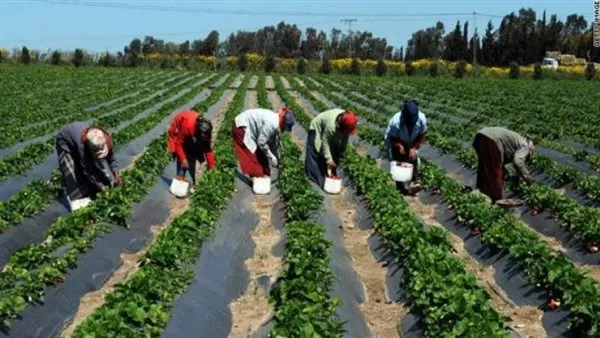By Ibrahim Mohamed
Rather than invite trainees here, take the expertise and technology to them.
The Ministry of Agriculture has set up farms in Africa to pass on Egyptian expertise in keeping with policy from the political leadership to help our southern neighbours.
Egyptian farms in Africa are important activities of the Ministry of Agriculture, which has set up a number of farms on the African continent to transfer Egyptian agricultural technology and expertise to African countries and to emphasise Egypt’s presence in African countries because of the strategic depth they represent for Egypt.
Jointly-managed farms in South Sudan, Niger, Zambia, Zanzibar, Democratic Republic of Congo (DRC), Mali, Togo, Uganda, and Eritrea are currently growing wheat and maize. Agricultural horizons are set to broaden to animal husbandry, fish farms and poultry production.
Model farms are one way to strengthen relations with African countries and disseminate expertise.
Model farms are considered one of the development projects to activate relations with the countries of the continent and achieve integration with our African brothers through the transfer of Egyptian agricultural expertise and technology to the countries of the African continent.
They are divided into two types: model farms providing extension services. The areas of these farms range from 150 to 500 hectares. They aim to apply the extension agriculture model to all activities, whether field crops, horticultural, poultry, livestock, fisheries or agricultural production.
The second type is productive farms, whose areas reach more than 1000 hectares and which depend on agricultural investment activity. These farms are subject to the investment laws in the African countries in which they are located.
This came due to African countries having many natural resources, such as very fertile lands that do not need significant expenses to reclaim, such as sandlands, and cheap labour in Africa.
There are plans for large-scale farming on 1000 hectares to attract investment. They will be subject to local investment law.
The model farm scheme was launched in 1998 by the Egyptian Fund for Technical Co-operation with Africa (EFTCA), affiliated with the Foreign Affairs Ministry.
The first farm was established on 220 feddans in Niger. From 2007, Ministry of Agriculture assumed responsibility for the model farms as a tool of Egyptian soft power.






Discussion about this post